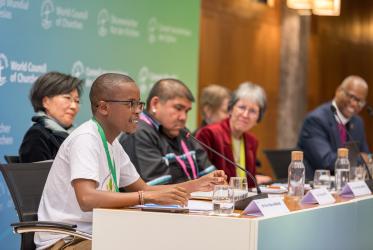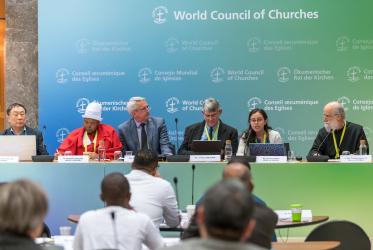Displaying 1 - 20 of 3930
A table with space for everyone
11 April 2024
A global outlook from different angles
10 April 2024
Voice of churches vital during UN women’s rights talks
28 March 2024
WCC at the Commission on the Status of Women
09 - 22 March 2024
Que peuvent faire les Églises pour prévenir l’esclavage moderne?
26 February 2024











